Helping Others First
Written by Czech Hospital Placements on Thursday, July 13, 2017
Cardiac Surgeon, Roman Gebauer, Children's Heart Center, Medical Mission, Women in Medicine
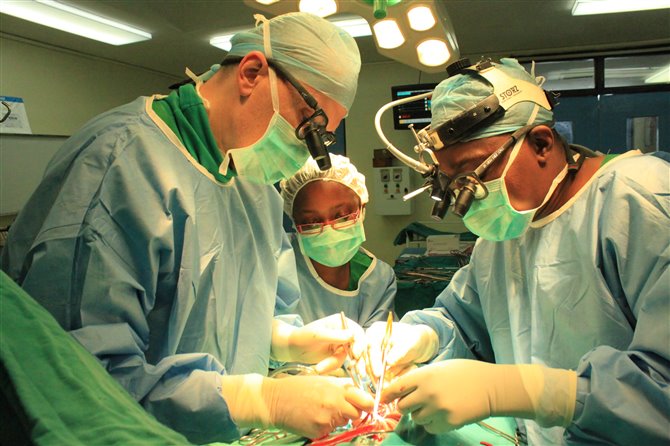
To meet Roman Gebauer, a congenital cardiac surgeon focusing on inborn heart defects in children, means you are meeting the real professional with a strong international reputation and years of experience abroad. When you speak with him about the medical humanitarian missions he's taken part in for numerous years all around the world or about the role of women in healthcare, the time flies by incredibly fast.
Doctor Gebauer is the head of the pediatric cardiac surgery department at the University Hospital in Motol. His goal - apart from the care for his patients in the Czech Republic - is to help patients in the regions where the medical aid is not accessible in his specialty and also to enable his colleagues abroad - through learning and experience - to build up a healthcare system that would be self-sufficient in their own country.
You've taken part in eleven missions abroad. In which countries did you help as a healthcare professional?
I used to work in Leicester, it was eight years ago and there was a charity organization called Healing Little Hearts which was led by Indian doctors based in Leicester at that time. I went five times with them to India on medical missions and later on with a Czech governmental humanitarian program MEDEVAC five times to Kenya and once in Jordan.
What was your motivation to study medicine? Why have you started to go help abroad?
I started to study medicine during the era of the communist regime without a special plan. My mother used to be a doctor, but I wasn't 100% sure that I want to become a doctor, too. I was just 18 and I wasn't really sure what field should I choose. There were two possibilities, either to go to serve my duty in the army or to study at university. During my medical studies, I got one book about Albert Schweitzer. I was really fascinated by his life, his attitude and the way how he helped others. And even during this era of the communist regime, when it was not possible to travel outside of Czechoslovakia, I had a dream of going somewhere abroad, too. So after my studies, I went to army duty and then I decided to continue in pediatric cardiac surgery, which is a great specialty if you want to help because there are millions of children outside of the European borders who need surgeries.
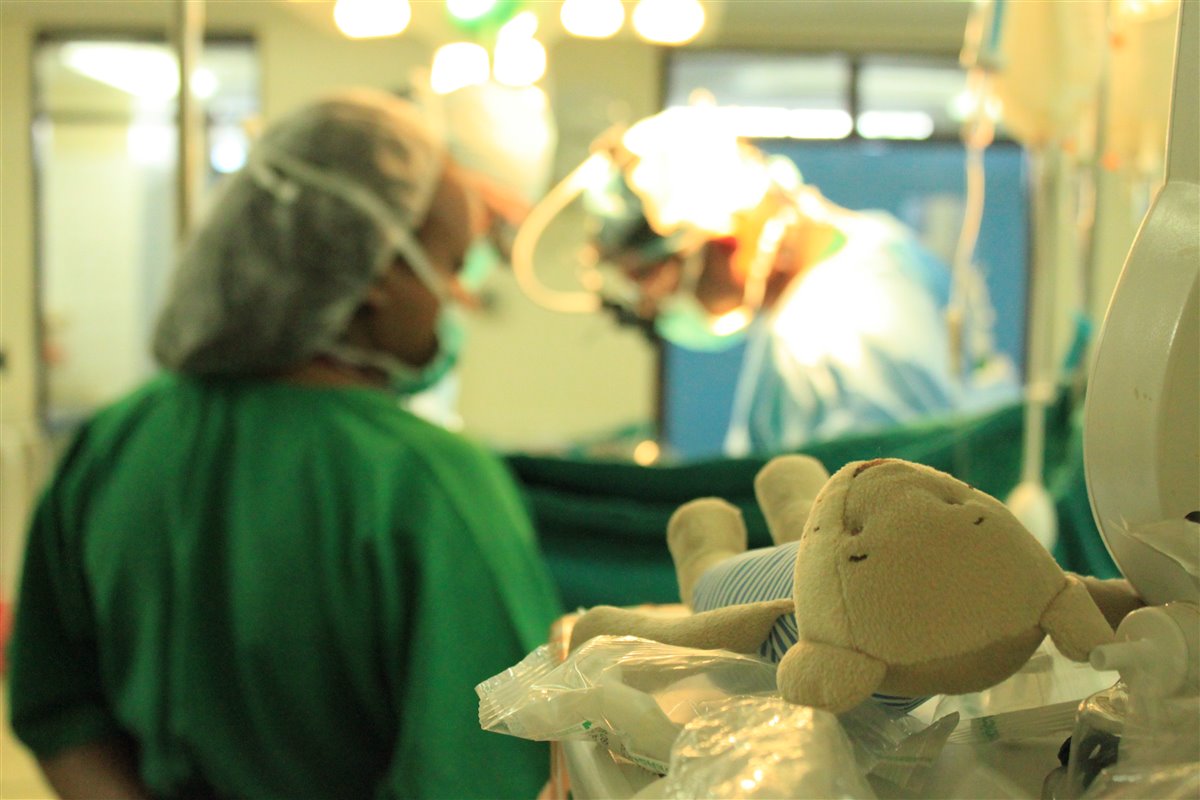
Kenya, Photo archive of doctor Roman Gebauer
What is your advice for young colleagues or medical students if they would like to help as you do?
Actually, there are running programs, like the Italian one called Emergency or Chain of Hope in the UK. In these organizations, they do not need surgeons, anesthesiologists or pediatricians solely but even volunteers. So just have a look at their websites, there is a chance for the medical students to get involved.
Why start studying medicine according to you today?
A difficult question really. I think it's all changing. The people now have so many options of what to do. Sometimes I feel that especially for men medicine as a field of study can be a bit boring. Because it's six years of studying and many years to finish your subspecialty. That requires a lot of patience and maybe that is the explanation of why among our students are so many women (about 60% of all). Medicine requires also a personal attitude to help people. Salary is comparable to other fields but your working hours are way more demanding. But during our medical missions, I realized that wherever we were the majority of people from other countries (and other programs and not necessarily from cardiac ones) working with us were women. I think that this is the century of women actually. I am quite glad because I have two daughters and one son ![]() The ladies of today are more independent and freer to live their dreams then it was the case in the past. I saw the last photo of the group from the Healing Little Hearts' team in India and seven out of eight people were women.
The ladies of today are more independent and freer to live their dreams then it was the case in the past. I saw the last photo of the group from the Healing Little Hearts' team in India and seven out of eight people were women.
How do you prepare for a medical mission?
That depends, you need to have a solid overview of the country and also about the background of the workplace you are going to. For example in Jordan, where we operate mainly refugees from Syria or patients coming from Iraq, there is a very good hospital performing cardiac surgery and everything is prepared. So they usually need solely one cardiac surgeon as the rest can be done by local people. On the other side in Kenya or Morocco, they have a very low workload, they operate about hundred patients a year. But there you need colleagues from different specialties not only in surgery but in anesthesia or intensive care medicine. So in Jordan, we are a team of 3 people, while in Kenya a group of 9 people going on a mission. Apart from the team point of view you also need to be well prepared in terms of the equipment for the particular patient cases.
And how do you prepare personally for it?
Well, of course, I need some vaccination and once you organize a mission like the ones to Kenya where bigger teams are needed, you have to establish a good cooperation among various healthcare facilities and their cardiac centers to ask other professionals if they want to join.
What is the first day of a medical mission like?
In the mission, the first day is a very tough one. You have limited resources, time and sometimes even space within the hospital as a limited number of beds in the ICU. In Kenya the first day you will see fifty patients and you must decide and choose who will be operated right now, who the day after and who is inoperable and there is no chance to repair the damage with considering that it's the last chance for a child to undergo the surgery. We had cases which we decided to postpone, we came back the next year and found out the child was already gone.
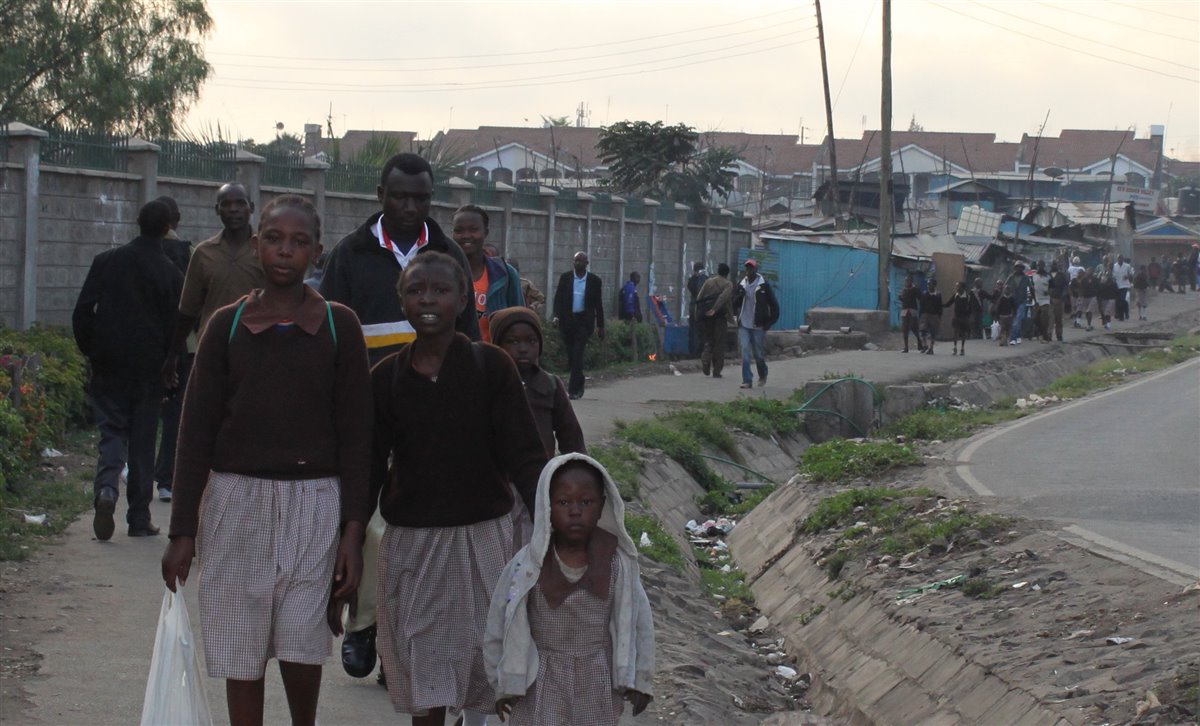

Kenya, Photo archive of doctor Roman Gebauer
Do you take into consideration the background of the patient?
In Kenya for example if the family has money the government subsidizes 50% of the costs and 50% is paid by the family. If you come from a poor family, the government will pay the 90% but you still need to pay the last 10%. In Kenya, there are large families and there is a possibility to collect the amount of 10%. The patient background is very important. If you have a repairable defect and you are able to undergo a surgery and there are no drawbacks, you will end up as a healthy patient for the rest of your time. But sometimes it's either a complicated surgery or a palliative surgery and this patient will never be a fully healthy person. And that is the kind of an issue to be discussed with the family. In these cases, the family background is quite important.
I had a young girl as my patient, two years old, with a not fully repairable defect and her father asked me about the future of this child and I said that she would live, but pregnancy is not an option I would recommend later on for her. The father replied that no one will ever marry her. As a single lady here, you are fine, without kids as well, but there it is not possible. I spent six months working in Saudi Arabia twelve years ago and it was the same situation, I had a young lady with a fully repairable cardiac defect and I received a phone call from her future husband and he asked whether it is possible for her to have a child in the future? I said, that it is, of course, possible and he replied "Good. Because if not, I cannot marry her!" It is a different world.
What has surprised you a person during these experiences?
In Europe we have a declining number of children, I think it's 1,5 kid per woman, and especially in the Czech Republic with several prenatal screenings, low religiosity and pragmatism of Czech women the rate of abortions are higher than in the rest of Europe. And for me, it's fascinating that only a couple of hours by plane will take you to a different world. There are so many kids. And nobody is taking care of prenatal screenings.
I'm surprised that in Mumbai in India there are so many poor people living on the streets and then very good hospitals doing very good cardiac surgery.
And when I was speaking about women nowadays. I was really surprised that in Bangalore I saw a hospital doing five times more surgeries than we do here in Prague and I happened to be in their OR and each and every member of the staff were women.
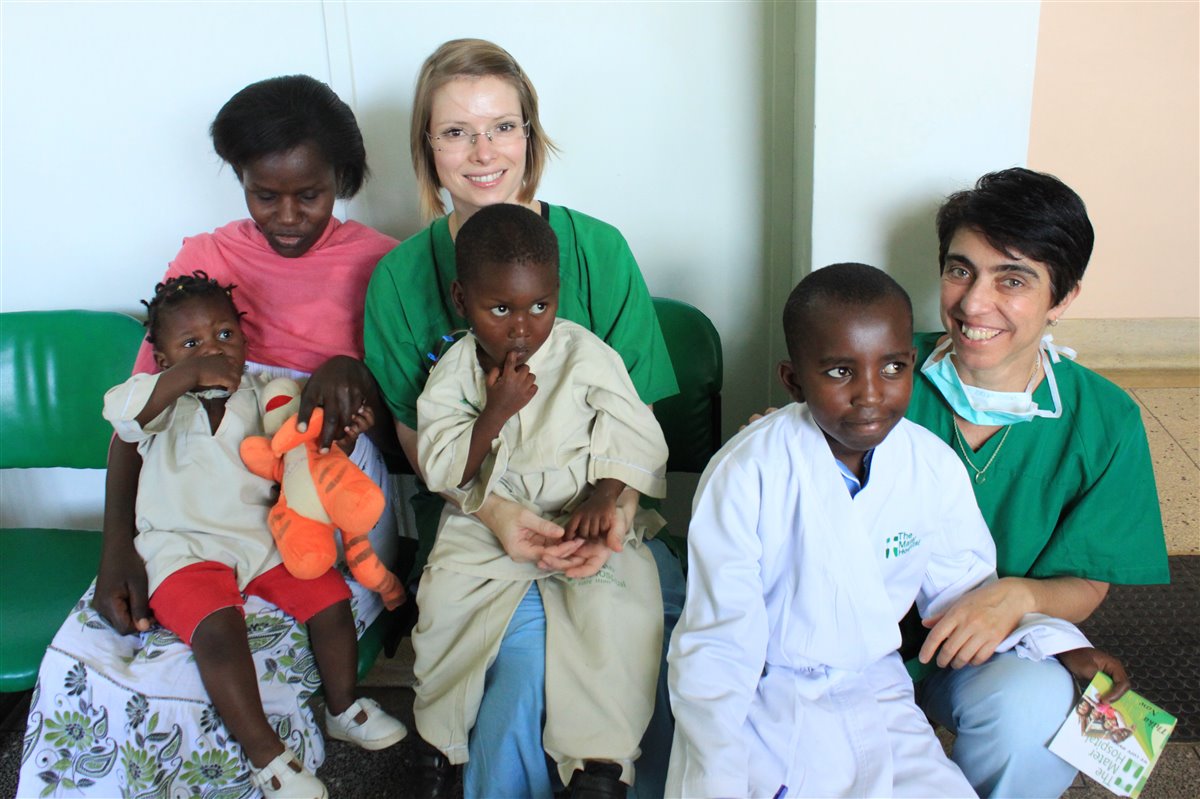
Kenya, Photo archive of doctor Roman Gebauer
What are your current projects in Europe?
We cooperate with Slovenia to help them build their own cardiac center as every European country should have one of their own in my opinion. Even though it's not a problem to be operated either here or in Germany or Austria, because the distance is quite small, it is always better to be treated in your home country where you can talk in your native language, while feeling the support of your family, being used to the culture of the country.
But what I would like to do here is to stabilize the situation with the lack of nurses. There are not enough nurses in the whole country which is a problem for our patients in the Czech Republic and of course for patients from abroad, too, who would like to be treated here. I would really like to improve it.
What would be your advice for women in healthcare regarding the balance between work and personal life?
Anything is possible, really. It depends on your attitude and on your future husband. Sometimes it depends on the approach of your country towards healthcare professionals, too. I worked in Denmark and I met two German lady surgeons. They were from Kiel and I asked them if it wouldn't be better for them to work in Germany and they said "I wanted to be a cardiac surgeon and I wanted to have a family as well. The chief surgeon told me I need to choose one or another." So she started to work in Denmark instead and now has her career and two kids. The balance in life depends not only on your profession but also sometimes on the country you work in. Scandinavian countries are very good in achieving work/life balance while in the U.S. or Germany they overstress the working hours. So if you are a woman it doesn't mean at all you can't be a good cardiac surgeon no matter what they tell you.

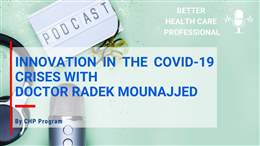





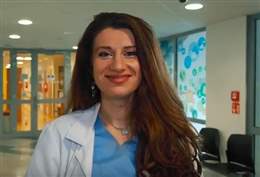

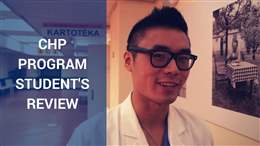
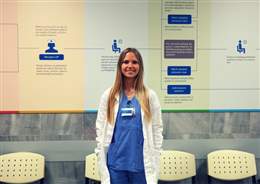


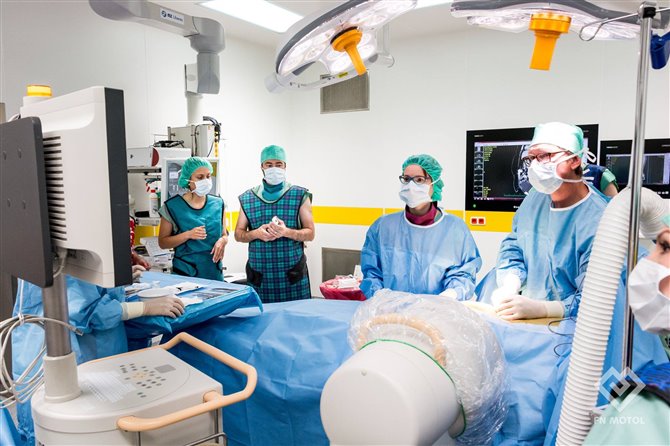

Categories
Behind the Scenes of the University Hospital in Motol
Being a Healthcare Student
Best Adventures While Travelling
Discover the Medical Specialties
Inspiration: Practical Experience of Healthcare Professionals
Obsolete vs. Visionary
The Better Health Care Professional Podcast
Tips and Tricks for Your Successful Career
Top News in Healthcare
Travels in COVID-era